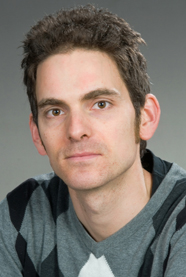 MA(Dist) (Otago), PGDip(Dist) (Otago), BA (Otago)
MA(Dist) (Otago), PGDip(Dist) (Otago), BA (Otago)Completed 2014: PhD
Thesis Title:
Liberalism and its Populist Excess – Barack Obama, the Tea Party and the Media Field
Thesis Abstract:
The remarkable ascendancy of Barack Obama to the presidency of the United States of America, in the shadows of the financial crisis, was in no small part due to the effective discursive response to the ideological crisis of American neo-liberalism. Obama's redemptive identity politics and civil society discourse of transformation perfectly embodied the new spirit of capitalism (Boltanski and Chiapello 2005) and the claims to the transcend capitalism's worst excesses. Despite what was widely described as the death of knell of conservative politics, post-financial crisis American bore witness to a Randian populist rebellion bedeviling the liberal class. The Tea Party represent the return of the political, that is the ontological necessity of the antagonism in social signification, while claiming access to the Universal as the original “people” of the American revolution. What the Tea Party speak to is the timelessness of the fetishized man of property, which accounts for a left/right indeterminacy in American populism, and the over determined irrational response to Obama, as threatening the sanctify of their fetish. What is novel in this populist upsurge is its specifically mediatized character with Fox News performing a temporal-spatial bridging of an individuated populist public. The media field has become a critical site for the return of the political as it performs an essential function of biopolitical production by both extending commodification into social life and creating new forms of commonality. In examining the populist threat to the liberal vision of the political, this thesis will analyze a broad spectrum of texts covering the Tea Party/Obama political frontier from across the media field and social media in order to establish whether mediatized politics simply means a populist commercialism or offers a new space of possibilities for a politics of Universality.
Supervisors:
Professor Geoff Craig (University of Kent)
Personal Information:
Oliver Jutel is a former TV journalist and media professional. His published worked has been concerned with neo-liberalism, populism, the media and public sphere.
Teaching and Tutoring
Previous tutoring:
MFCO202 (2011), MFCO303 (2013), MFCO219 (Course design) (2013)
Conferences:
2012 'Populism and the Political Economy of the Media Field'. International Association of Media and Communication Researchers, University of Kwazulu-Natal, Durban, South Africa, July 15-19
2012 'Populism, the Political and the Field of Power', Postgraduate Research Conference on Politics and Power, New Zealand
Political Studies Association, University of Otago, July 3. 2011 'Populism and the Political', New Zealand Political Studies Association, University of Otago, December, 1.
2011 'The Global Food Crisis, Neo-Liberal Discourse and the Political Economy of The Media', Journalism, Media and Democracy, AUT, September, 15.
2010 'Barack Obama's Civil Society politics and the Populist Resistance', Journalism, Media and Democracy, AUT, September 15.
2009 “The Way of the World”, Neo-liberal Discourse, the Media and Fisher & Paykel's Offshore Relocation', New Zealand. Political Studies Association, University of Auckland, December, 7.
Publications:
Jutel, O. (2013) 'Populism and the New Political Economy of the Media Field', Political Economy of Communication, 1:1, 26-42.
Jutel, O. (2012) ““Why Can't We be Friends?” Scooped Book Review”, New Zealand Journal of Media Studies, 13:2.
Jutel, O. (2012) 'Barack Obama, The new Spirit of Capitalism and the Populist Resistance', International Journal of Zizek Studies, 6:3.
Jutel, O. (2011) Neo-liberal Discourse and the Global Food Crisis', Borderlands, December, 10:3, 1-24
Jutel, O. (2011) “The Way of the World”, 'Neo-Liberal Discourse, the Media and Fisher and & Paykel's Offshore Relocation', Communication, Politics & Culture, 44:1, 33-3
